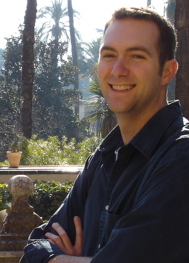News & Social Media
WikiSym posts updates to:
- @WikiSym on Twitter
If you tweet about WikiSym, please use the hashtag #wikisym.
Sponsors
Opening keynote (Monday)
Cathy Casserly, CEO, Creative Commons
 Abstract: Creative Commons (CC) is focused on realizing the full potential of the Internet – universal access to and full participation in research, education and culture. CC works towards this vision by providing the legal and technical infrastructure that enables people to share, remix and reuse content easily and legally. Creative Commons CEO Catherine Casserly will discuss the critical role this infrastructure plays in innovation and collaboration, especially within the context of education; give a brief overview of the CC license suite and tools; share examples of how these tools power open collaboration in various domains; and preview the organization’s future focus.
Abstract: Creative Commons (CC) is focused on realizing the full potential of the Internet – universal access to and full participation in research, education and culture. CC works towards this vision by providing the legal and technical infrastructure that enables people to share, remix and reuse content easily and legally. Creative Commons CEO Catherine Casserly will discuss the critical role this infrastructure plays in innovation and collaboration, especially within the context of education; give a brief overview of the CC license suite and tools; share examples of how these tools power open collaboration in various domains; and preview the organization’s future focus.
Bio: Catherine M. Casserly's career is dedicated to openness, particularly to leveraging possibilities at the boundary of formal and informal learning in order to equalize educational opportunity. Casserly has been a long-time advocate of open educational resources (OER). As the Director of the OER Initiative at The William and Flora Hewlett Foundation, she managed investments totalling more than $100 million to harness the efficiency and effectiveness of knowledge sharing worldwide.
At the Carnegie Foundation for the Advancement of Teaching, Casserly spearheaded work in the areas of transparency and technology as a Senior Partner and the Vice President of Innovation and Open Networks. With the extended Carnegie team, she launched a continuous performance improvement system to create alternative mathematics pathways for community college students.
Casserly has been instrumental in supporting many young organizations; she currently serves on the boards of directors for Startl and Peer-2-Peer University as well as advisory committees for MIT OpenCourseWare and the University of the People. She holds a Ph.D. in the economics of education from Stanford University and a B.A. in mathematics from Boston College.
WikiViz invited keynote (Tuesday)
Jeffrey Heer, Assistant Professor, Computer Science Department, Stanford University
 Abstract: Scaling out, opening up, and telling it straight: challenges for data visualization
Abstract: Scaling out, opening up, and telling it straight: challenges for data visualization
The increasing scale and accessibility of digital data provides an under-exploited resource for improving governance, public policy, collaborative work, and even our personal lives. Yet, acquiring and storing this data is, by itself, of little value. We must make sense of data in order to produce value from it. By leveraging human visual processing, visualizations provide powerful aids for finding and communicating insights in data. In this talk, I will outline some outstanding challenges for data analysis and visualization: scaling out to large heterogeneous data, opening up the analysis lifecycle to collaborative effort, and telling it straight through interactive visual storytelling.
Bio: Jeffrey Heer studies human-computer interaction, visualization, and social computing. His research investigates the perceptual, cognitive, and social factors involved in making sense of large data collections, resulting in new interactive systems for visual analysis and communication.
Heer’s work has produced novel visualization techniques for exploring data, software tools that simplify visualization creation and customization, and collaborative analysis systems that leverage the insights of multiple analysts. He has also led the design of the Prefuse, Flare, and Protovis open-source visualization toolkits, which have been downloaded over 100,000 times, cited in over 500 research publications, and used by researchers, corporations, and thousands of data enthusiasts.
Heer received his B.S., M.S., and Ph.D. degrees in Computer Science from the University of California, Berkeley. Over the years, he has also worked at a number of research laboratories and corporations, including Xerox PARC, IBM Research, Microsoft Research, and Tableau Software. Heer is the recipient of a 2009 ACM CHI Best Paper Award, Faculty Awards from IBM and Intel, and UC Berkeley's C.V. Ramamoorthy Distinguished Research Award; in 2009, he was named to MIT Technology Review's TR35, a list recognizing 35 innovators under the age of 35.
Closing keynote (Wednesday)
Ed Chi, Staff Research Scientist at Google
 Abstract: Model-Driven Research in Social Computing
Abstract: Model-Driven Research in Social Computing
Research in Augmented Social Cognition is aimed at enhancing the ability of a group of people to remember, think, and reason. Our approach to creating this augmentation or enhancement is primarily model-driven. Our system developments are informed by models such as information scent, sensemaking, information theory, probabilistic models, and more recently, evolutionary dynamic models. These models have been used to understand a wide variety of user behaviors, from individuals interacting with social bookmark search in Delicious and MrTaggy.com to groups of people working on articles in Wikipedia. These models range in complexity from a simple set of assumptions to complex equations describing human and group behaviors.
By studying online social systems such as Google Plus, Twitter, Delicious, and Wikipedia, we further our understanding of how knowledge is constructed in a social context. In this talk, I will illustrate how a model-driven approach could help illuminate the path forward for research in social computing and community knowledge building
Bio: Ed H. Chi is a Staff Research Scientist at Google, working on the Google+ project. Very recently, Ed was the Area Manager and a Principal Scientist at Palo Alto Research Center's Augmented Social Cognition Group. He led the group in understanding how Web2.0 and Social Computing systems help groups of people to remember, think and reason. Ed completed his three degrees (B.S., M.S., and Ph.D.) in 6.5 years from University of Minnesota, and has been doing research on user interface software systems since 1993. He has been featured and quoted in the press, including the Economist, Time Magazine, LA Times, and the Associated Press.
With 20 patents and over 80 research articles, his most well-known past project is the study of Information Scent — understanding how users navigate and understand the Web and information environments. Most recently, he leads a group of researchers at PARC to understand the underlying mechanisms in online social systems such as Wikipedia and social tagging sites. He has also worked on information visualization, computational molecular biology, ubicomp, and recommendation/search engines. He has won awards for both teaching and research. In his spare time, Ed is an avid Taekwondo martial artist, photographer, and snowboarder.





